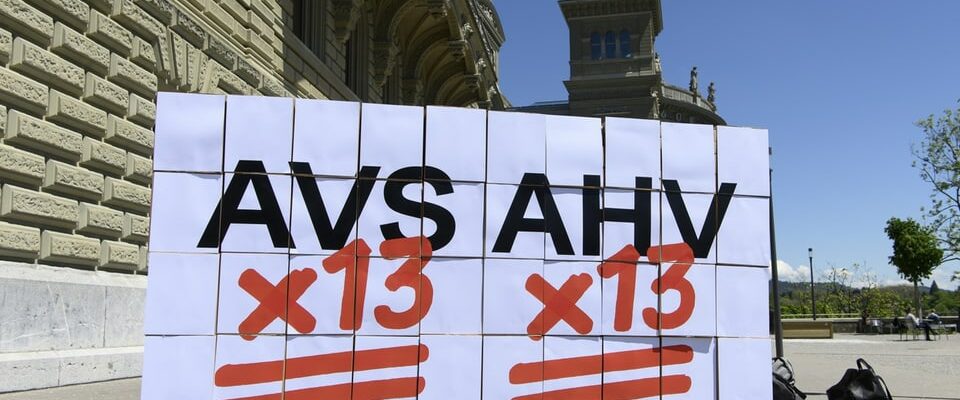Contents
On March 3rd, voters will decide on the 13th AHV pension. Four statements from the “Club” put to the test.
There are many claims circulating about the presentation of the 13th AHV pension. Here are facts about various statements.
I don’t need the 13th AHV, and most pensioners feel the same.
Are they sitting on the cruise ship or in the dark? There is heated debate about the financial situation of pensioners, including in the “Club”. Rent, premiums, electricity – in 2024 the costs will rise massively. How are the pensioners doing?
Many studies deal with their financial situation, we have compiled a few: In one Federal survey on subjective well-being and living conditions Around 56 percent of people over 65 say their satisfaction with the financial situation in their household is “very high”. According to the federal government, one in five people is of retirement age at risk of poverty or lives in poverty, i.e. with around 2300 francs per month. That’s 21.7 percent or 336,000 people. These federal statistics is based on income without taking into account any assets. Wealth in Switzerland is high, but very unevenly distributed.
Legend:
There are many claims circulating about the presentation of the 13th AHV pension.
Keystone/ANTHONY ANEX
A study by Philippe Wanner, professor at the University of Geneva, based on tax data from 11 cantons, came to the conclusion: 80 percent of people over 65 are not poor, and in the 70 age group, three out of four couple households are homeowners, according to Wanner. However, you can’t afford a meal from a house, emphasizes Magdalena Erni, co-president of the Young Greens, in the “Club”. In addition, the reality of life for future pensioners will change. The dream of owning a home is currently unattainable for large parts of the population.
In 2022, 12 percent of pensioners received supplementary benefits (EL) because the AHV was not enough to live on. According to a study commissioned by Pro Senectute, 230,000 people over 65 do not receive the EL, even though they are entitled to it.
Financing can be regulated.
There is nothing in the initiative text about how the 13th AHV pension should be financed. The 13th AHV is likely to cost between 4 and 5 billion per year. There are various financing options available: increasing the wage percentage by 0.8 percent, half of which is borne by employers, or a further increase in VAT. If approved, Parliament would have to agree on financing.
From 2030 a solution is needed for the AHV.
Federal forecasts show: Losses in the AHV pot are expected from 2031. With an additional pension, losses are predicted as early as 2026. However, projections beyond 10 years are not very reliable, writes the Federal Council in a statement on one Interpellation from FDP National Councilor Andri Silberschmidt.
There are better solutions than the 13th AHV.
The argument comes up again and again that we should help those who really need it and not just hand out money in a watering can. One way to do this would be to strengthen supplementary services. However, it was only this January that around 70,000 pensioners with low incomes had their EL reduced and around 8,000 people were cut off completely. The center-right has a different proposal: Two identical motions from Melanie Mettler (GLP) and Beat Rieder (center) demand that only the lowest pensions be increased. The Advance by Melanie Mettler was unanimously approved by the National Council in mid-December. The motion is pending in the Commission in the Council of States.
